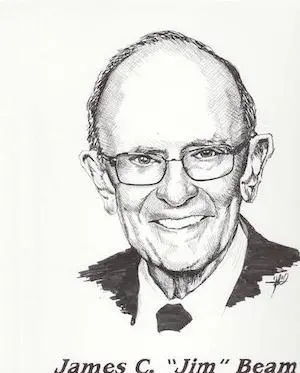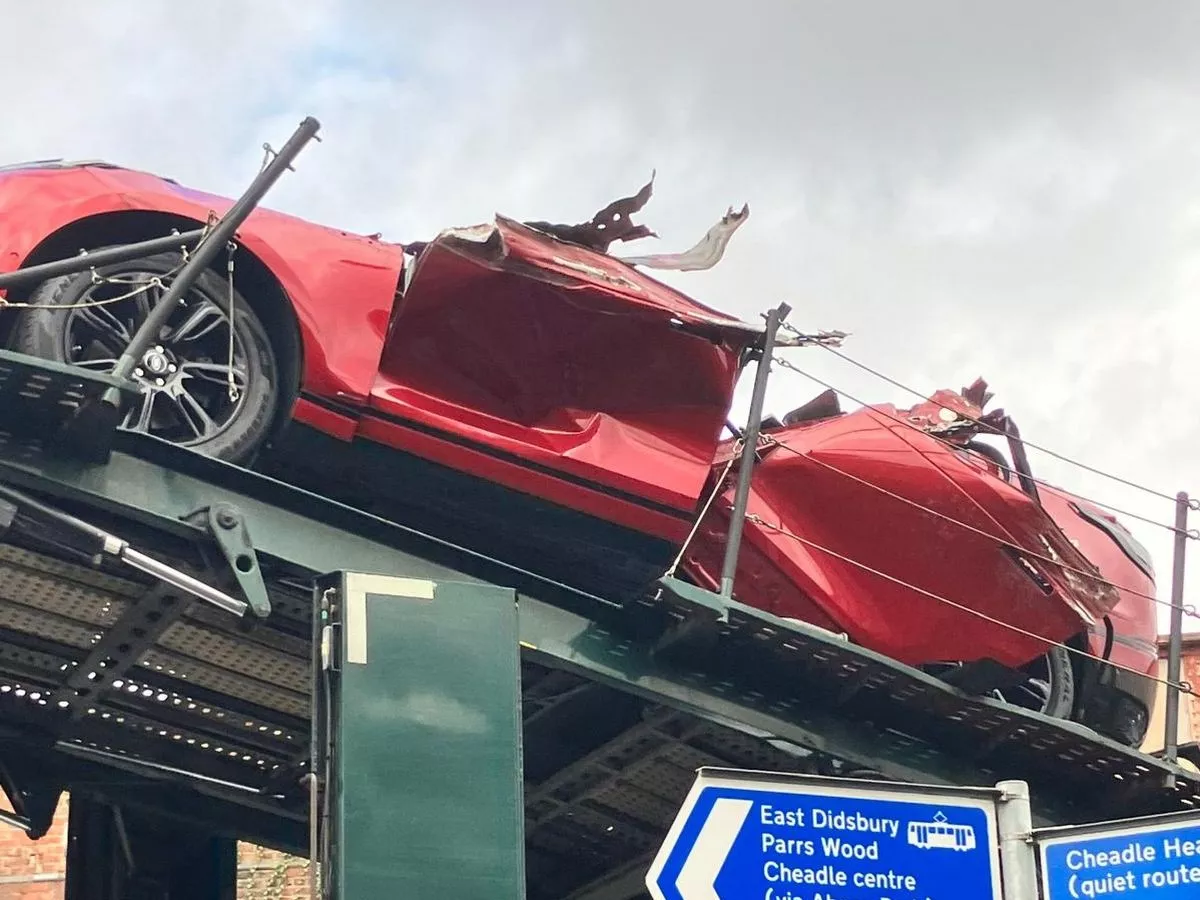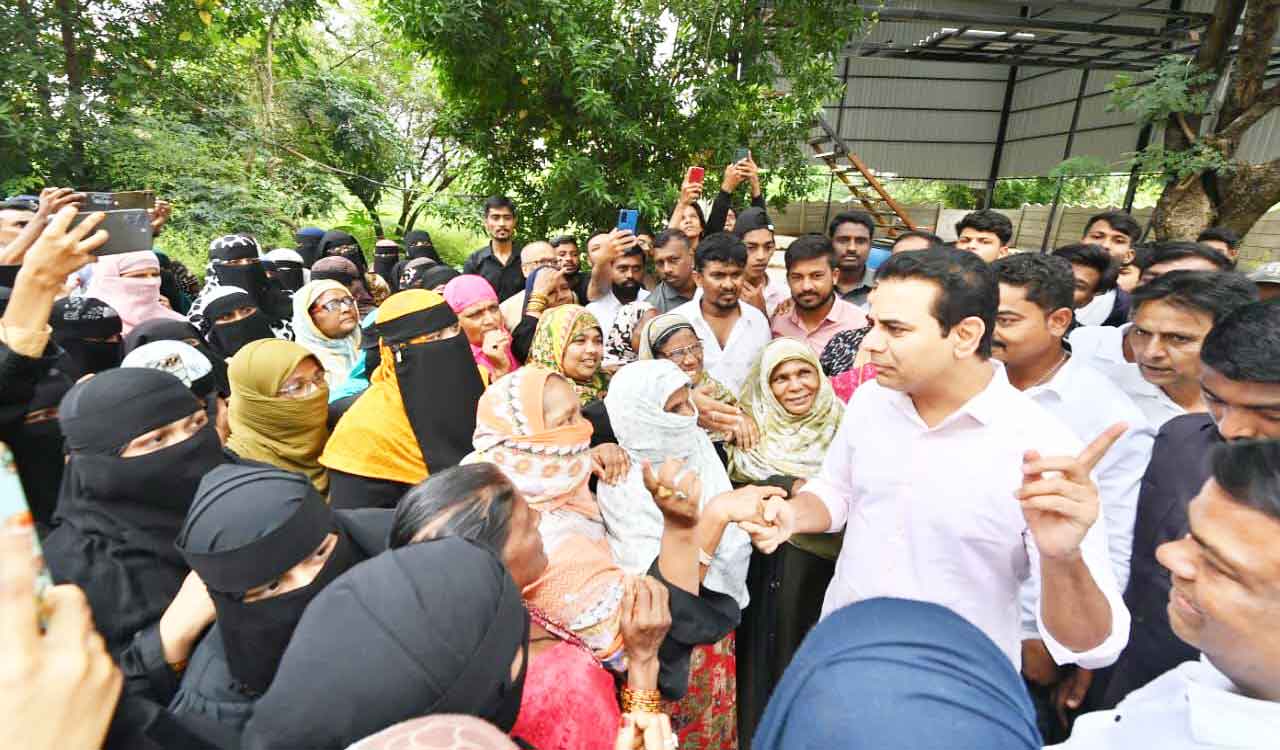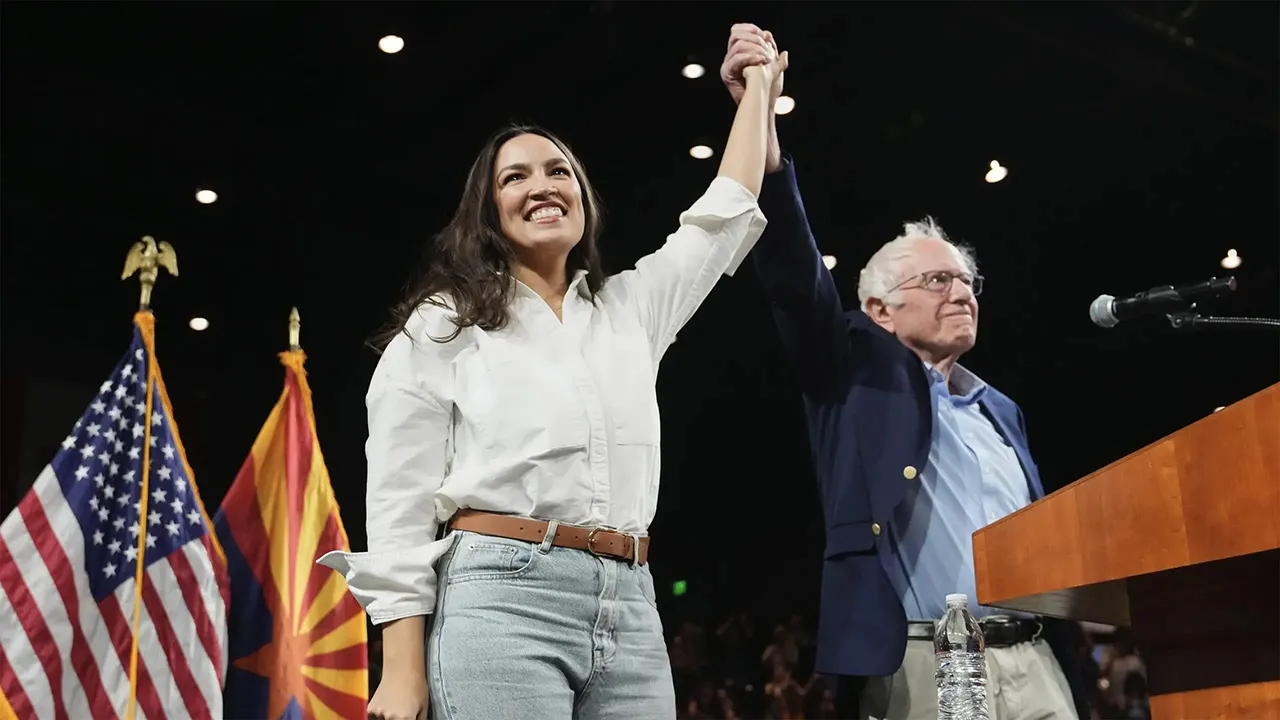Copyright Slate
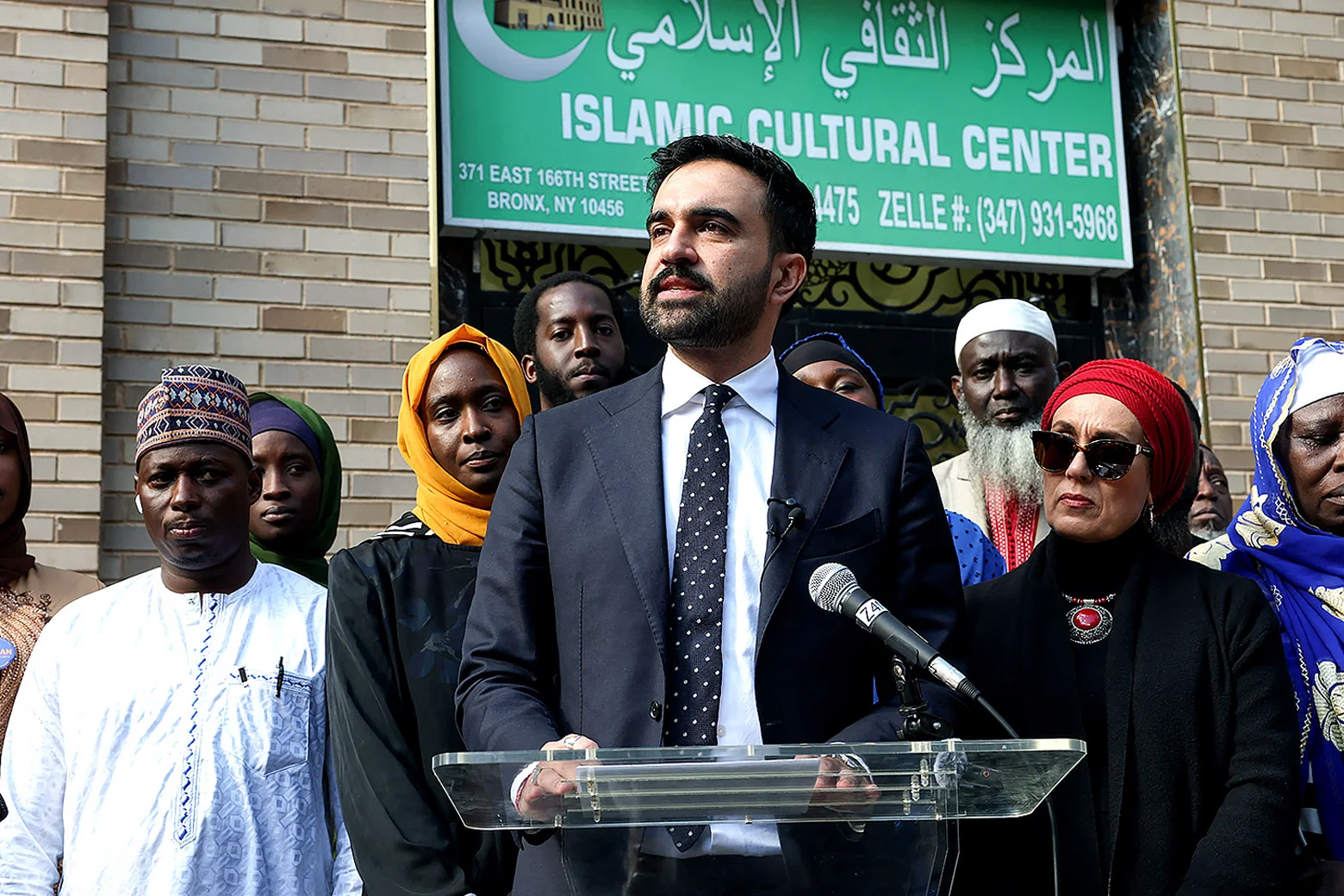
Sign up for the Slatest to get the most insightful analysis, criticism, and advice out there, delivered to your inbox daily. Over the past year, Zohran Mamdani’s mayoral run has felt like a breath of fresh air: On the strength of a campaign focused on rent freezes, free public transit, and universal child care, he came out of relative obscurity to unseat an establishment Democrat in the primary over the summer. But at the same time, we’ve seen a tired old script play out in the attacks on his campaign. To Mamdani’s right-wing opponents, none of his proposals to make New Yorkers’ lives more affordable matter as much as the religion he grew up in. Republican Rep. Elise Stefanik, for example, blasted Mamdani as a “jihadist” and “Terrorist Sympathizer” in a fundraising email and incendiary tweets. Far-right agitator Laura Loomer, a close ally of Donald Trump, warned her followers “Get ready for another 9/11,” claiming a “pro-Hamas Muslim socialist” was about to run New York. Florida lawmaker Randy Fine called Mamdani “little more than a Muslim terrorist,” saying his U.S. citizenship should be stripped and that he should be deported “to the Ugandan shithole he came from.” Tellingly, it’s not just Republicans engaging in this fearmongering. New York’s own outgoing Democratic mayor, Eric Adams, endorsed Andrew Cuomo, who’s running against Mamdani as an independent, with a speech that ominously cited the need to combat “Islamic extremism.” It’s a smear that implies Mamdani’s very presence (and by extension, that of Muslim New Yorkers) is a security threat. Earlier this month, Cuomo quipped during a radio appearance, “God forbid, another 9/11—can you imagine Mamdani in the seat?” When the host replied, “He’d be cheering,” Cuomo laughed and agreed. For Muslim Americans like me, these attacks feel depressingly familiar—like a greatest-hits reel of the past 20 years’ worst Islamophobic tropes. We’ve heard all of this before. Keith Ellison had to defend using Thomas Jefferson’s Quran at his 2007 swearing-in, amid baseless claims of Muslim disloyalty. Barack Obama’s opponents tried to paint him as a terrorist sympathizer for having the middle name Hussein. Sen. Ted Cruz urged police to “patrol and secure Muslim neighborhoods before they become radicalized.” If a politician made these kinds of statements about any other faith group, it would be career-defining. Yet when it comes to Muslims, this kind of bigotry can bring in votes. Islamophobia has long been one of the last socially acceptable forms of bigotry in American politics, and continues to rise. (Though in truth, plenty of politicians today seem determined to make other forms acceptable again, too.) When Mamdani recalled in a speech that his own aunt stopped riding the subway after 9/11 out of fear for her safety in hijab, it resonated deeply with Muslims who lived through it, like me. It spoke aloud the quiet trauma so many of us lived. On the morning of Sept. 11, 2001, I was in northern New Jersey, and watched the smoke billow from the World Trade Center. My father, Mohamed Ismail, was a black town-car driver in Manhattan, and like so many families that day, we scrambled desperately for any sign he was alive. My sister and I stayed up all night glued to the news, scanning every street-level shot of crowds trying to escape clouds of debris for only a glimpse of him. Miraculously, he came home days later, covered in dust. There were Muslim families in our community who were not so lucky. In the days immediately after 9/11, I felt a second wave of dread as our grieving community braced for a backlash. At our Jersey City mosque (which doubled as an Islamic school, where my mother worked), imams handed out boxes of American flags for us to display, hoping patriotism might shield us. But instead, we soon found ourselves surveilled. The New York Police Department launched a covert “mapping” of Muslim communities as if we were an insurgency, even logging how often we prayed and measuring how long men’s beards were. This intelligence dragnet lasted for years, extending into my time at Rutgers University, where I remember spotting undercover NYPD agents who infiltrated Muslim student groups. The program never generated a single terrorism lead or criminal charge. Instead, it poisoned our trust in law enforcement and our faith in government, leaving a lasting sense of fear and alienation in its wake. In the weeks following 9/11, an unchecked wave of anti-Muslim hatred swept through New York and New Jersey. Arab- and South Asian–owned businesses were vandalized or firebombed in apparent revenge. Mosques and Islamic centers from Jersey City to Brooklyn received a barrage of bomb threats, forcing some to temporarily shut their doors. Muslim children were bullied in schools and women in hijab were spat on or even punched in the face on buses and subways. Muslim families reported their houses being egged, their car tires slashed, their children followed by menacing strangers. And civil rights groups widely agree that the real number of attacks was likely far higher, as many incidents went unreported by victims who feared drawing even more attention. Self-styled vigilantes murdered Balbir Singh Sodhi, and other innocent people they presumed to be Muslim. Meanwhile, federal authorities swept up over 1,000 Muslim men—mostly for minor immigration infractions—and detained them for months with no due process. Not a single terrorism charge resulted from these roundups. Fueling this frenzy were false rumors that Muslims had “cheered” as the Twin Towers fell—a vicious myth later amplified by Donald Trump. Police in Paterson rushed to an area rumored to have street celebrations, only to find local Muslims in prayer instead. Nonetheless, the urban legend of American Muslims rejoicing at 9/11 took on a life of its own, which neatly fit a preexisting narrative casting all Muslims as irredeemable enemies of the West. This paranoid climate was mainstreamed after 9/11, reinforced nightly on cable news segments about Islam’s supposed hatred of modernity. The myth of Muslim Americans as complicit in 9/11 persisted because it fed a long-standing us-vs.-them narrative going back to the Cold War era, when American politics and pop culture had been laying the groundwork. After the 1979 revolution in Iran, Ayatollah Khomeini became the face of a new global menace. Hollywood locked in the Muslim terrorist as a stock villain, and federal surveillance programs like Operation Boulder targeted Arab Americans years before the NYPD’s spying ever began. As journalist Mehdi Hasan has noted, we didn’t invent Islamophobia after 9/11; after the Cold War, the Red Scare gave way to a “Green Scare,” and Muslims became the new ideological enemy. What’s remarkable today is the emerging resistance to these old tactics. The fact that Mamdani won the Democratic primary defeating heavyweights like Cuomo is itself profound. Voters are, in effect, rebuking the cynical ploy to weaponize 9/11. None of this is to say Islamophobia in U.S. politics will magically vanish overnight if Mamdani wins. Bigots like Fine, Stefanik, and others will only abandon their anti-Muslim playbook when they see it start costing them elections. We’re not quite there yet. But the fact that so many New Yorkers are vocally pushing back against the smears, and that a broad multifaith coalition is calling out the bigotry rather than looking away, gives me hope. As Mamdani defiantly declared in a recent speech: “I will not change who I am. I will not change how I eat. I will not change the faith that I am proud to belong to. But there is one thing that I will change. I will no longer look for myself in the shadows. I will find myself in the light.” For countless American Muslims who have been made to feel like perpetual outsiders in our own home, those words are immensely healing.
